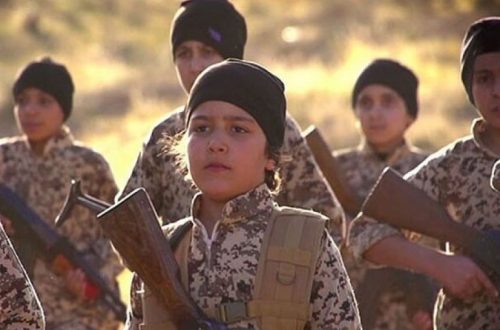This is a cross-post by Kyle Orton
To hear President Obama tell it, his announced program to defeat the Islamic State (ISIS), which began with airstrikes into Iraq last August that were extended into Syria in September, is working, albeit with some tactical setbacks. The implication is that the setbacks of the U.S.-led anti-ISIS campaign are not strategic.
As J.M. Berger phrased it:
In the Washington vernacular, the act of Being Strategic implies a near mystical quality of superior thinking possessed by some, and clearly lacking amongst the vulgarians of the world—heedless brutes such as ISIL. Tactics are short-term ploys, easy to dismiss. Strategy is for winners.
Unfortunately, this soothing view is almost exactly wrong: it is the United States that is relying on various short-term methods—commando raids into the Syrian desert, for example—while ISIS has a long-term goal fixed in mind and is working assiduously to achieve it. The U.S.-led Coalition is losing, in short, and ISIS is winning.
Yesterday, a Shi’a mosque in Saudi Arabia’s Eastern Province was struck by a suicide bomber,massacring more than thirty people. The attack was soon claimed by ISIS.
Last November, Abu Bakr al-Baghdad accepted the baya of ISIS branches outside Iraq and Syria: Libya, Egypt, Algeria, and (anonymously) Yemen and Saudi Arabia. The Libyan branch is thestrongest, and getting stronger. Egypt’s ISIS branch is faring well and the conditions are in placefor it to do better. Yemen’s ISIS branch has “come out” as Wilayat Sanaa, launched its first official attack in March, and is second only to Libya in its prospects. Now, after several minor attacks, ISIS in al-Saud also reveals itself; the attack was claimed by Wilayat Najd, an addition to Wilayat Bilad al-Haramayn, ISIS’ “provinces” in Saudi Arabia. The only ISIS branch that seems to have been wrapped up is in Algeria, but nobody should want Le Pouvoir in charge of counter-terrorism policy (see here and here).
In addition, ISIS has gained in Tunisia and Nigeria. Last December in Tunisia, a 97-second audiopledged allegiance to al-Baghdadi in the name of Jund al-Khalifa fi Tunis; nothing more was said about it. On May 18, a nine-minute audio gave baya to al-Baghdadi in the name of Mujahideen Tunis al-Qayrawan, and the announcement of an “official” wilayah (province) is believed to be imminent. And on March 7, Boko Haram declared its allegiance to ISIS, an addition (at least in propaganda terms) of 20,000 square-miles to the “Caliphate”.
To most it will be clear that this is not what it looks like when a group is being defeated, but the argument will be made that ISIS doesn’t really control these branches outside the Fertile Crescent, and therefore in essence there is no need to worry. The evidence against that is already quite convincing: direct emissaries of ISIS were sent to set up the branch in Libya and ISIS is in “full command and control” of the media operations of all of the branches whose bayait has accepted. The Saudi attack yesterday suggests this co-ordination is deeper still.
On May 14, al-Baghdadi released an audio statement that was taken by most as a proof-of-life statement after the wide reporting that al-Baghdadi had been injured in an airstrike on March 18. Credit for prescience has to go to Aaron Zelin for pointing out that the contents of the speech were actually the most important thing, namely a ferocious attack on Saudi Arabia for hypocritically acting against the Iran-backed Houthis in Yemen but doing nothing about Iran’s persecution of (Sunni) Muslims in Syria and beyond.
You can read the full post here


